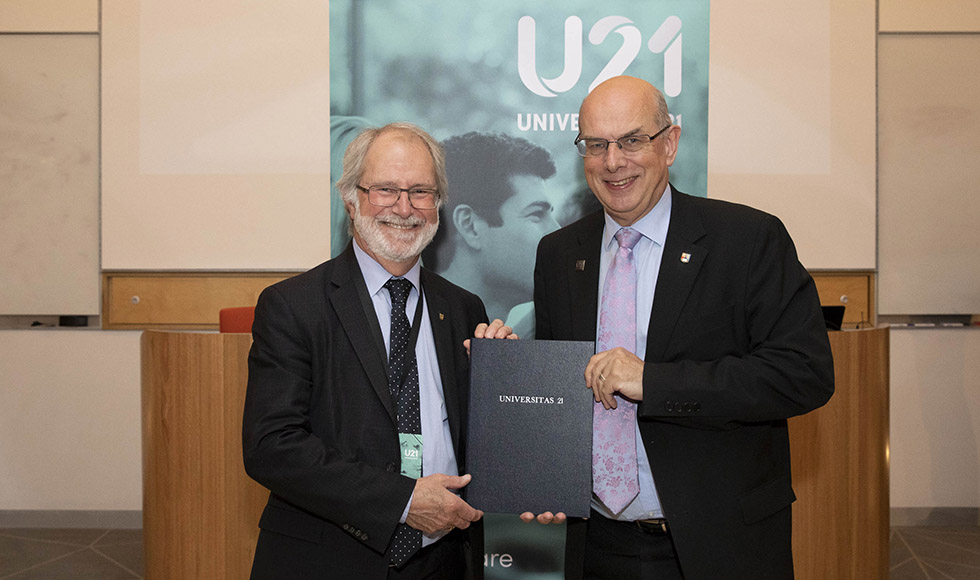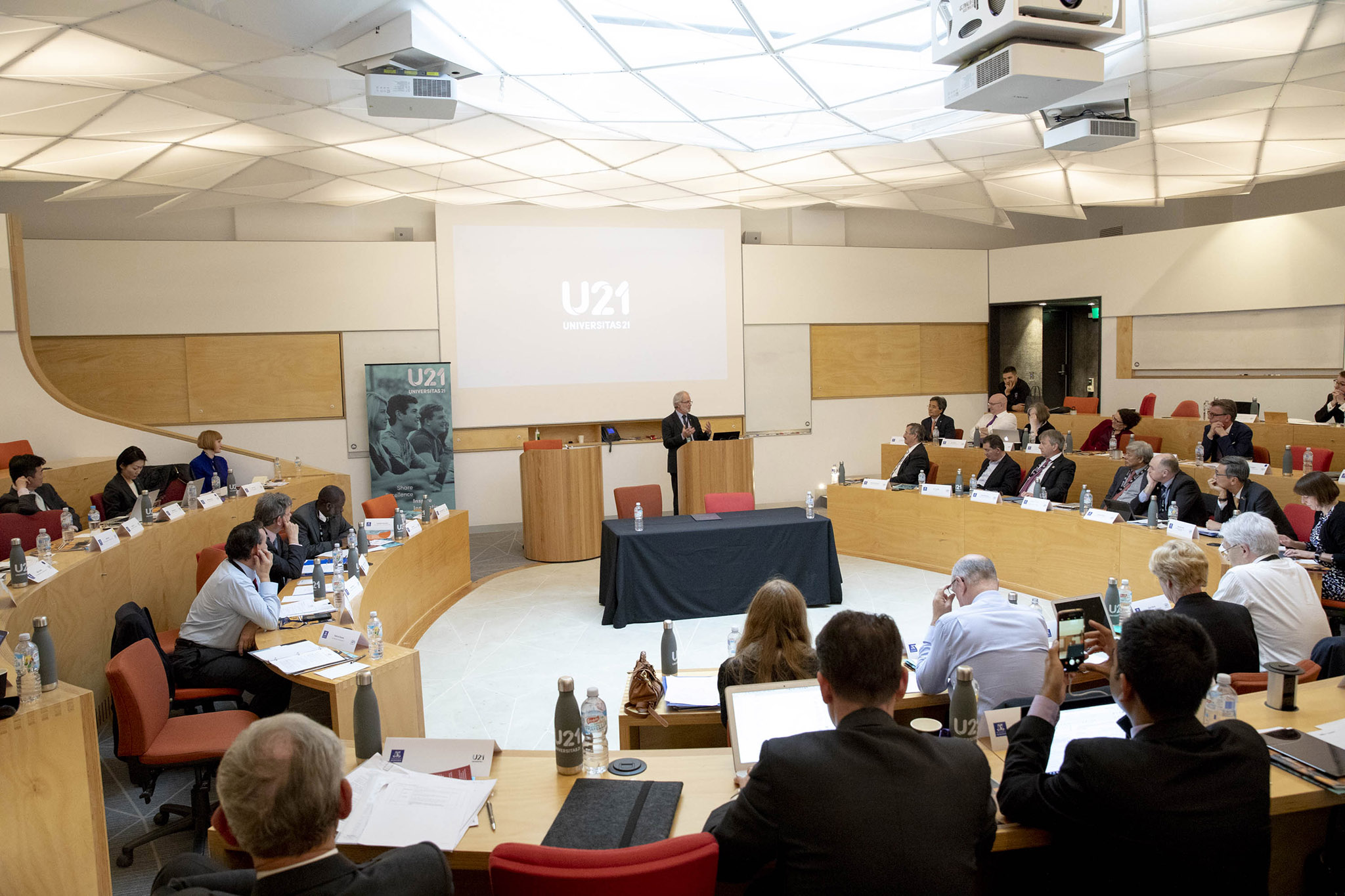McMaster joins global network of research-intensive universities

President Patrick Deane (left) poses with U21 Chair David Eastwood (right).
McMaster University has been inducted as a member of the Universitas 21 (U21), a leading global network of research-intensive universities.
Founded in 1997 at the University of Melbourne, U21 has now grown into a vibrant and prestigious global community of 26 leading universities from more than 17 countries.
The group encourages its members to share practices that support and enable excellence, collaborate across borders and nurture global knowledge sharing.

“McMaster is focused on providing high-quality, innovative education, enabling cutting-edge research, and proactively engaging with the broader community,” says President Patrick Deane. “This membership will help us continue to strengthen partnerships and collaboration within a global network of institutions.”
The work across the U21 network is focused on three main strategic areas: education innovation, student experience, and research engagement. Each of these project areas receives expert advice and leadership from steering groups made up of experienced senior academics and professional staff from across the network’s members.
McMaster already has initiatives in place that support the commitments of the U21, including:
- Effective and sustainable approaches to learning and teaching through online and blended learning, such as The Massive Online Open Course (MOOC).
- McMaster’s Office of International Affairs fosters global citizenship among students, faculty, and staff through institutional participation in global initiatives, including international partnerships in support of research, scholarship and academic excellence, and strategic partnerships that advance the University’s civic mission.
U21 produces the annual Ranking of National Higher Educational Systems. Fifty national systems of higher education, from all continents, are evaluated across 24 areas. Countries are ranked overall and on each of four modules: Resources, Policy Environment, Connectivity and Output. This year, Canada placed 8th overall.


